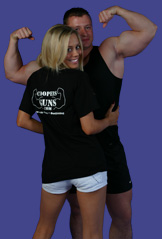
Frozen Shoulder (Adhesive Capsulitis)
What it Effects
- The capsule that surrounds the shoulder
- The non-dominant shoulder is more commonly effected
Who it Effects
- Women more commonly than men
- Common between the ages of 40yrs and 60yrs
Predisposing Factors
- Poor scapulohumeral alignment
- Rotator cuff lesions
- Common in people with diabetes
Signs and Symptoms
- Pain on movement, especially towards end range movement
- Limited range of movement
- Pain referred down the outside of the arm
- Night pain
- A capsular pattern of restricted movement with most loss of lateral rotation, less of abduction and least of medial rotation
- X-rays will show clear (can be taken to rule out arthritis of the shoulder)
Treatment
- Heat
- Ultrasound
- Mobilisations by a physiotherapist
- NSAID’s
- Exercises e.g. pulley and stick exercises
- Stretching exercises
- Cortisone injection into the shoulder capsule
Additional Information
- Frozen shoulder is characterised by adhesions and contractures in the fibrous capsule surrounding the shoulder joint. This tightening of the capsule limits the movement available at the shoulder and causes pain
- The cause of frozen shoulder is currently unknown
- There are three distinct phases in frozen shoulder, with the condition usually resolving within two years:
- 1 - Freezing phase - there is a gradual loss of movement at the shoulder with some pain that then develops into a sharp pain that can disturb sleep within a couple of months. Pain is above the elbow and only on movement. The shoulder has an elastic end feel
- 2 - Frozen phase - this phase can last for a year. The restricted range of movement continues with no improvement in range. Pain is below the elbow and constant. There is a hard end feel and the person is unable to lie on the shoulder
- 3 - Thawing phase - this stage varies in length from six months to two years. In this phase the lost movement is gradually regained and the pain is intermittent
